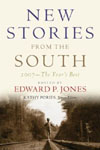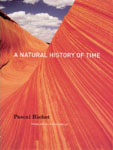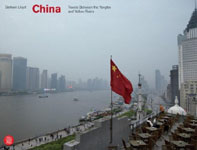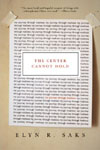Book Digest: September 10, 2007
Among other things I can’t explain is the aptness of the well-worn line from A Tale of Two Cities: “It was the best of times, it was the worst of times.” Lots of good books to read, and yet there is something foreboding about the American political landscape—I think it’s something Herbert Marcuse talked about, the moronization that is coincident with a hyper-consumerist culture. So it goes.
I count Cynthia Ozick among the living writers I admire, and I was amused to see her Los Angeles Times assessment of Kerouac’s magnum opus during the 50th-anniversary hoopla of that tome:
My zealously churlish response: At the acme of his celebrity, I thought Kerouac a purveyor of frenzied fakery, of pseudo-mystical junk; and I do not depart now from the intelligent judgment of my youth. Nowadays, “On the Road” can perhaps count as a document of a sentimental overwrought underdone subliterate zonked-out shamanistic onanistic fool-ridden era, when saccharine blockheads posed as transcendent Blake-heads, when stupor was mistaken for Buddha… but what the hell, let it count for any old thing!—as long as you don’t call it literature.
Another one of my favorites, George Saunders, was on the Late Show With David Letterman, which I would not have known were it not for Dandy Dan Wickett’s invitation to a former Saunders student to comment on this rare cultural eclipse (a literary fiction writer on mainstream TV), which concludes:
What I was worried about when I heard George was going to be on Letterman was that he would come off as not quite the thing he was to me when I was at Syracuse: one of the few truly honest and good people I’d ever met. And then there was the worst possible eventuality: that finally, after all this, after fighting the good fight for so long, that the MacArthur Genius Award, the making movies with Ben Stiller, traveling around Africa with Bill Clinton, etc. would finally have changed him and he would appear there on national television. I can report he did not. The crowd laughed. Dave laughed. And for a moment, a writer, a good writer, a real good writer, was a celebrity in 21st-century America.
The Best American Poetry, 2007 edited by Heather McHugh and David Lehman

This is the 20th edition of this yearly anthology, and McHugh has selected 75 poems out of the thousands published in the past year. The selections were based on a simple criterion: “their having moved me, one way or another, first individually and then as the year proceeded, in sequences (for they were assembled under terms of time and auspices of alphabet).” This volume includes the well known—Donald Hall, Louise Gluck, Robert Hass, Billy Collins, and Richard Wilbur—and the up-and-coming—Ben Lerner, Meghan O’Rourke, Brian Turner, and Matthea Harvey. Obviously, this is a useful collection for those of you without the time to devote to all those wonderful journals that still publish poetry.
Shining at the Bottom of the Sea by Stephen Marche

This is an amazing and original story, in which Marche fabricates an entire national culture (of the island nation Sanjania) told in the fragmentary pastiche style of Eduardo Galeano’s Memories of Fire trilogy. Except in this case all the text is fiction—all of it: From the table of contents opening passage of the “Foreward” by Sanjanian literary lion Leonard King (who says, “Sanjanians are perhaps the most literary people on earth. Book stalls are as common as fruit stands, the theaters around Saint Magdalene’s Square dwarf the City Hall and on the Sanjair flights the stewards push small carts of books down the aisle after the beverages and pretzels…”) to the “criticism” and “biographical notes.” Marche is brilliant and amusing storyteller whose growing audience, will, I am confident, find him so.
» Read an excerpt from Shining at the Bottom of the Sea
In a Cardboard Belt: Essays Personal, Literary, and Savage by Joseph Epstein

Small, fabulous Jew Joseph Epsteinhas published around 20 books, among those the bestsellers Snobbery and Of Friendship, and recently a worthy short biography on Alexis de Tocqueville. Editor of The American Scholar for more than 25 years, Epstein is an accomplished and erudite essayist, as well as a damned funny guy—to which this wide-ranging collection attests. Pieces on Paul Valery, Karl Shapiro, I.B. Singer. Marcel Proust, Truman Capote, Harold Bloom, and George Steiner are interwoven with personal essays, of which my favorite is “The Kid Turns Seventy (Nobody Cheers).” You can, I am certain, figure out what that is about.
» Read an excerpt from In a Cardboard Belt
The Pirate’s Daughter by Margaret Cezair-Thompson

Wellesley lecturer Cezair-Thomson (The True History of Paradise) creates a story about ‘40s movie star Errol Flynn’s amorous, late-life adventures on a small island off Jamaica. One of his many liaisons produces a daughter, May, who meets her father only once. The meeting results in a rich and resonant narrative, of which the publisher notes: “…tells the provocative history of a vanished era, of uncommon kinships, compelling attachments, betrayal and atonement in a paradisiacal, tropical setting.”
New Stories From the South: 2007 edited by Edward P. Jones and Kathy Pories

The vast population of geographically challenged Americans who view life in the South as a hybrid of Deliverance and Gone With the Wind have no doubt dismissed this anthology. Luckily in literature (and it should be said that the South has more than its share of very fine writers), as in other things, Southerners support their own—thus this anthology celebrates its 22nd edition, and the second under a guest-editor system. (Last year’s volume was edited by Alan Gurganis.)
EdwardJones chose 18 stories, mixing old wine James Lee Burke, Rick Bass, Tim Gautreaux, Gurganis, and George Singleton with new vintages Holly Goddard Jones, Joshua Ferris, Angela Threat, and Philipp Meyer. Here’s Jones:
I have tried to do my best to pick stories that are not, to use some of William Faulkner’s words, about the glands but about the human heart. What helped me most, in the end, was whatever I have accumulated over the years reading and taking to heart the stories written by people whose work will last. It could be that I read them and learned it all wrong, but I think my heart was in the right place.
I’m pretty certain Jones got it right. Indeed.
Song for Night by Chris Albani

What does it mean that there is a growing body of literary fiction (Uzodinma Iweala’s Beasts of No Nation, Russell Banks’s The Darling) dealing with the horrific, large-scale recruitment of children soldiers? Prolific and talented Nigerian émigré Albani focuses his well-honed fictive blades on this blight, and adds a particularly harrowing touch: Children in land-mine clearing platoons have their vocal cords cut out to mute their screams when they are blown up. Read it and weep.
War and Peace by Leo Tolstoy, translated by Andrew Bromfield

This iteration of the classic novel, shorter than the prevailing 1,500-page juggernaut, has been lying fallow for a century and is just now making it into print. This, with another new translation of the familiar edition, may signal a Tolstoy boomlet—or that the Tolstoy estate has hired an especially astute publicist. Perhaps you might see what the fuss is about.
» Read an excerpt from War and Peace
A Natural History of Time by Pascal Richet, translated by John Veneralla

This is a compelling investigation that melds a number of disciplines—scientific, speculative, and creative—to explain the history of the Earth while avoiding the perennial dispute between science and religion. Besides presenting a kind of meta-study, geophysicist Richet sets up a chronological scale with a 4.5-billion-year timeline that references the Bible, Hesiod, da Vinci, Descartes, Newton, geology, fossils, geophysics, and chemistry. This is one of those books that provides a refreshing shift in the way we look at things we take for granted, something all good storytelling does.
China: Travels Between the Yangtze and Yellow Rivers by Barbara Lloyd

This slender, well-produced volume is divided into five “itineraries” covering Beijing, Shanghai, the Yangtze River, Dali, Shangri-la, Sichuan, Leshan, and the Yellow River. Lloyd, a former director of London’s Marlborough Gallery, admirably captures the landscape, cityscape, and people of this rapidly transforming—and might I add misunderstood—behemoth. It’s a tasty appetizer that begs for a heartier, stomach-filling main course.
The Center Cannot Hold: My Journey Through Madness by Elyn Saks

More often than not, memoirs derived from an author’s affliction or deficit are a dicey matter; at best, I find them better suited to a lengthy magazine piece. However, Saks’s story of her life-long struggle with schizophrenia is especially compelling in that she seems to have managed to overcome incredible obstacles through an amalgam of antipsychotic medicine, psychoanalysis, close personal relationships, and an active professional life. She is a law professor at U.S.C, a faculty member of the University of California at San Diego Medical School, married, and living in Los Angeles—all of which provide at least something hopeful in what is often an otherwise hopeless diagnosis.
» Read an excerpt from The Center Will Not Hold My Journey Through Madness
Tree of Smoke by Denis Johnson

I suspect that the reclusive Johnson occupies a unique position in American literary fiction circles—though I am sure I can’t quite say what it is. A kind of a shadowy spectral eminence, he has on the basis of five novels—including the revered Jesus’s Son, a collection of poetry, and a book of reportage—gained the regard and admiration of all manner of literates. This Vietnam-era novel may finally be the defining book that that conflict has managed to elude. In a clear-minded review that understands the hellish myths of war that Johnson engages, but Chris Offutt, no slouch himself, opines, “Denis Johnson has delivered his masterpiece.”
